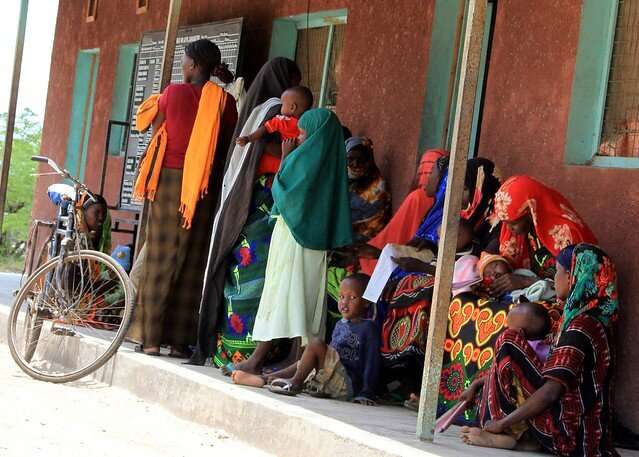PrEParing family planning clinics in Kenya to prevent new HIV infections

In sub-Saharan Africa, many young women and adolescent girls are at high risk of HIV infection. In a new research paper published in the open access journal PLOS Medicine, Kenneth Mugwanya and co-authors report on a study aiming to investigate the feasibility of providing antiretroviral drugs via family planning clinics to prevent HIV infection in young women.
Pre-exposure prophylaxis (PrEP) is a method for preventing HIV infection that involves providing antiretroviral drugs in pill form, and this approach has been successfully used in men who have sex with men. In Africa and elsewhere, preventing new HIV infections in other high-risk population groups, including women and girls, is a priority, and PrEP is one promising method that is undergoing evaluation.
In Mugwanya and colleagues' study, 1271 women (approximately half <24 years old) attending 8 family clinics in Kisumu, Kenya were screened and counseled about behavioural risks of HIV infection, with most women being married and reporting recent condomless sex. PrEP was initiated by 278 (22%) women, and this group included 94% of the women whose partners were known to be HIV positive. Of the 278 women initiating PrEP, 114 (41%) returned for at least one refill of PrEP drugs—continuation was 41% at 1 month, 24% at 3 months, and 15% at 6 months, the decline possibly being a sign of reflection on changes in women'stheir HIV risk or preferences about prevention methods. For the duration of the project, no HIV infections were observed in women returning for at least one visit after initiating PrEP.
The study indicates that integration of screening for HIV risk and preventive treatment among young women in a family planning clinic setting is feasible, despite the drop-off in participants continuing PrEP. The authors note that "this work will set the stage for ... full scale PrEP delivery in family planning clinics not only in Kenya but in other settings in Africa."
More information: Mugwanya KK, Pintye J, Kinuthia J, Abuna F, Lagat H, Begnel ER, et al. (2019) Integrating preexposure prophylaxis delivery in routine family planning clinics: A feasibility programmatic evaluation in Kenya. PLoS Med 16(9): e1002885. doi.org/10.1371/journal.pmed.1002885




















